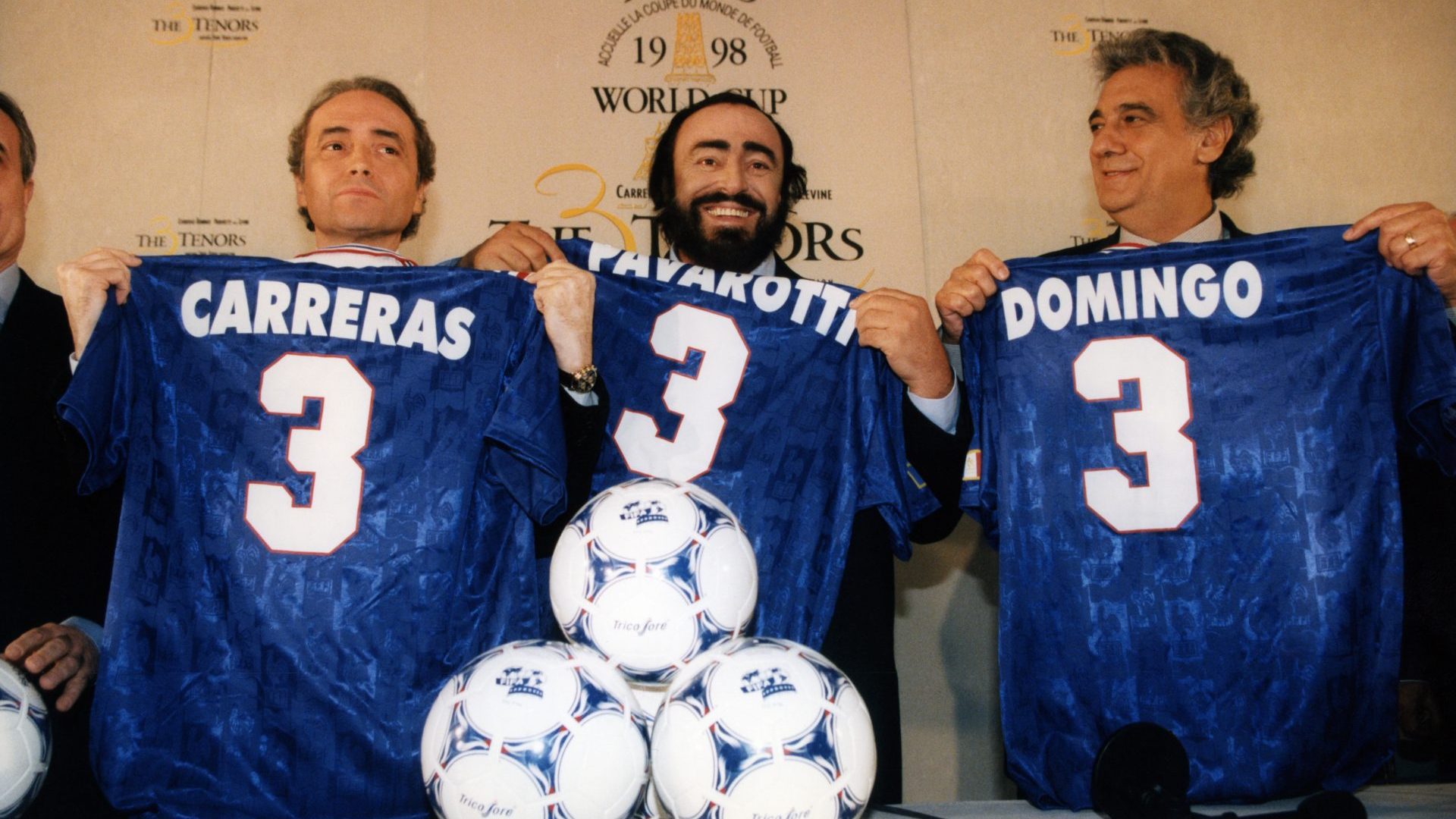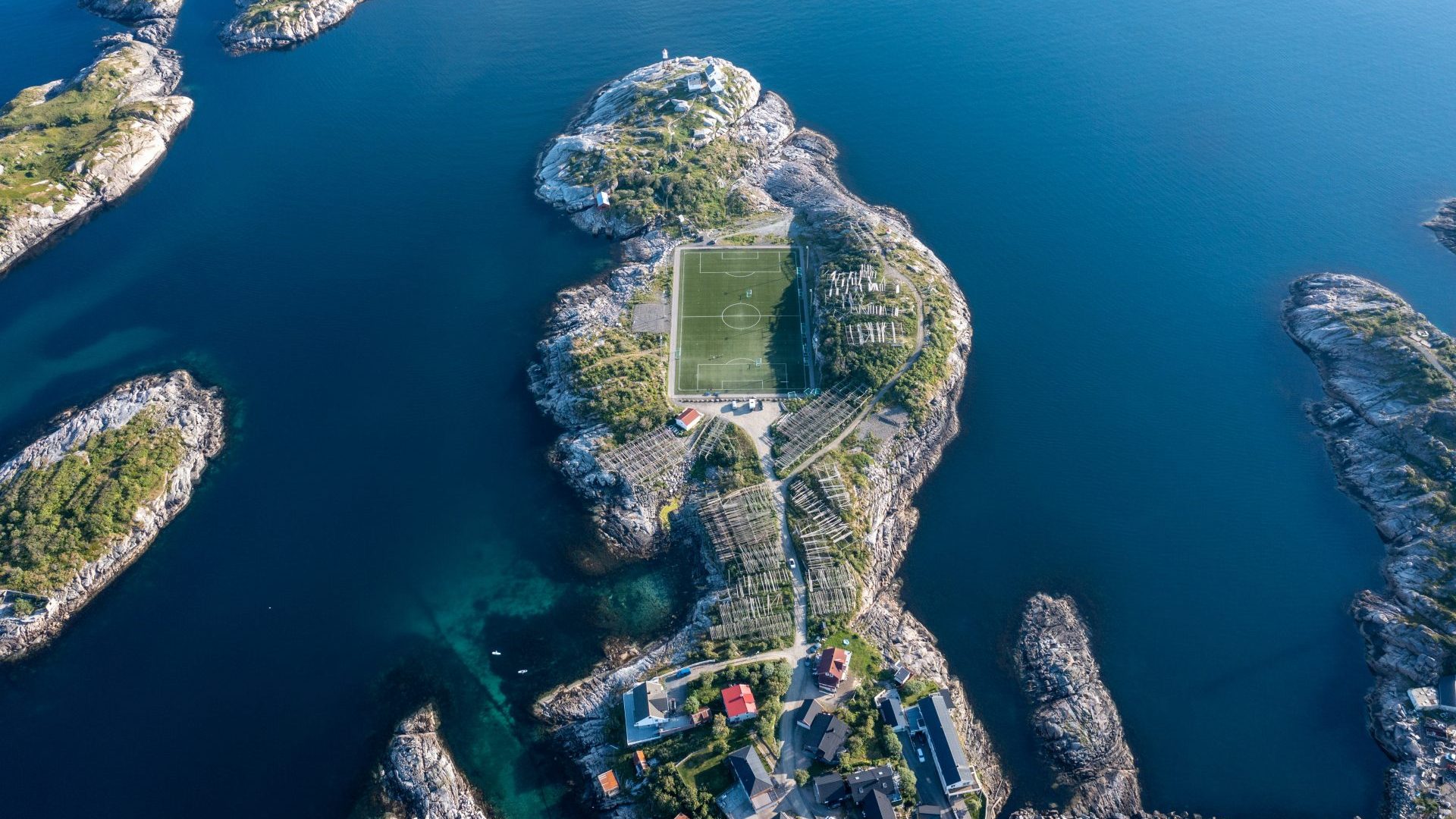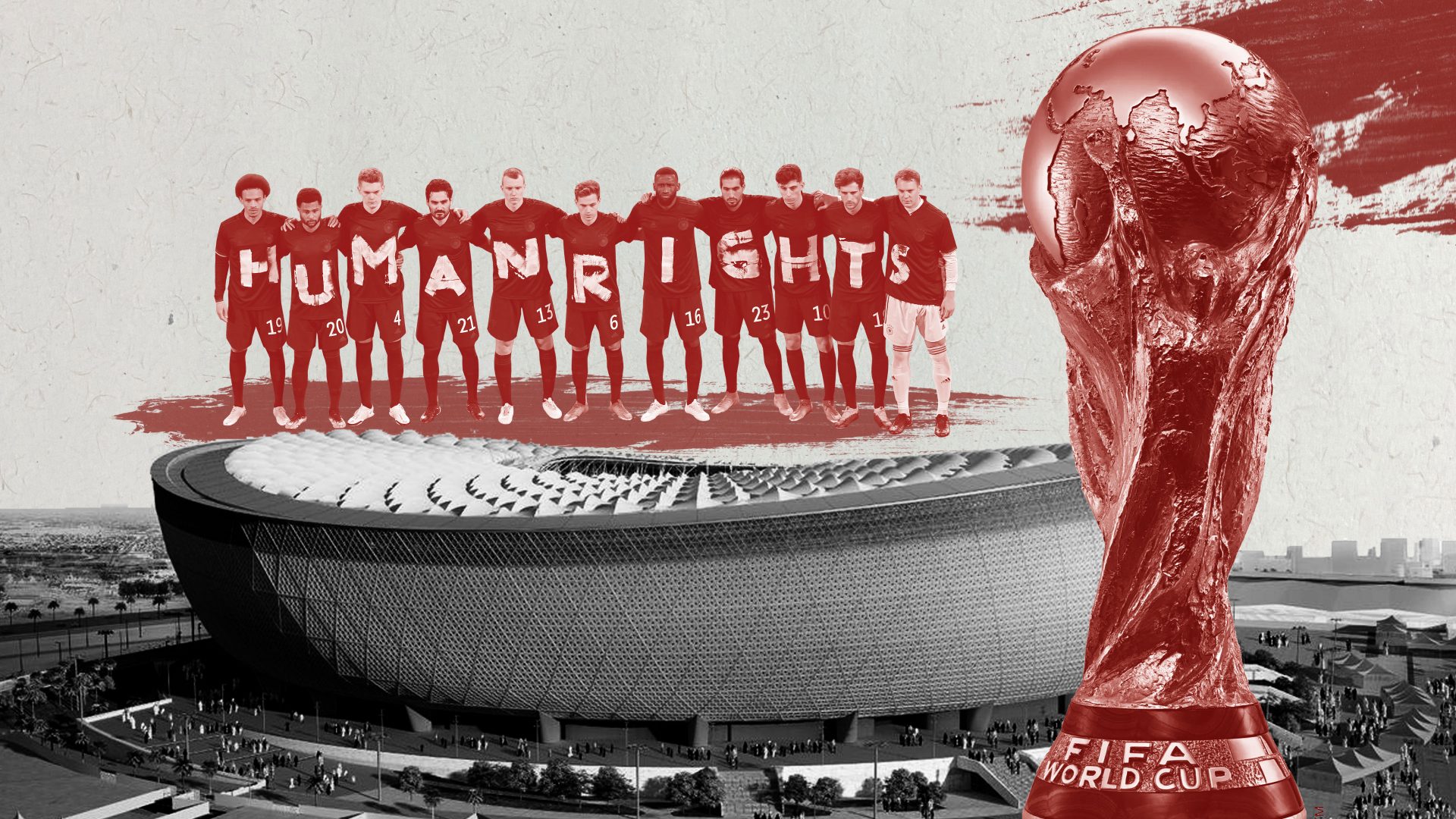Another World Cup means another official song of the tournament. Ever since 1962 Fifa has anointed such a track for the festivities, which has more often than not been about “togetherness”. The theme has apparently become compulsory, with the official song for Qatar 2022 – a host nation with not the slightest interest in egalitarianism – bearing the subtitle Better Together. This would be amusing if it were not so offensive, but there has at least been an effort to include a local act, the Qatari singer Aisha, alongside the American Trinidad Cardona and Nigerian singer Davido on the song.
On the five occasions the World Cup has been hosted on continental
European soil since 1962, the chosen songs have also often dealt with high
ideals that were not necessarily reflected on the pitch, and there have been repeated power struggles between local and international acts.
The 1974 tournament was hosted in a divided Germany, saw three matches
played in West Berlin itself, and included a highly charged clash between East and West Germany. The two songs representing the event – the German team’s cheery Fußball Ist Unser Leben (Football Is Our Life), and Futbol
futbol futbol, an upbeat, Eurovision-worthy belter by Polish singing legend
Maryla Rodowicz – had not a whiff of such controversy.
The 1982 tournament was hosted by Spain caught between the 1981 coup attempt and the October elections that would restore stability. The Argentine
surrender in the Falklands War came just the day after the World Cup began,
and the tension inherent in two nations that had very recently been killing each other playing in the tournament was hardly reflected in the lyric from official song, sung by Plácido Domingo: “El campo es una fiesta” (“The pitch is a party”).
When the tournament came to Italy in 1990, it was again a native act that sung the official song. While the British were going all misty-eyed for Pavarotti, Italian football fans were tearing up to Edoardo Bennato and
Gianna Nannini’s Un’estate italiana (An Italian Summer), a power ballad written by disco legend Giorgio Moroder and American songwriter Tom Whitlock (they had previously written Berlin’s Take My Breath Away together).
Bennato and Nannini made a surprisingly un-pop friendly pairing, what with Nannini’s gravel-voiced androgyny (think Patti Smith) and veteran rocker Bennato’s Dylanesque loose relationship with the actual tune. A far more vanilla English language version titled To Be Number One and with rather clunky lyrics (what “Time records the victory in our hearts” quite meant was anybody’s guess) was used for the Italian TV coverage.
While Un’estate italiana had been unmistakably Italian, when the World
Cup returned to Europe in 1998, the chosen song had no apparent link to
the host nation whatsoever. Puerto Rican pop star Ricky Martin’s La Copa
de la Vida was a deliberate rehash of his gigantic global hit María (1995) but
somehow missed that song’s infectious exuberance. Martin later admitted: “It was a unique opportunity to introduce the charms of Latin music to the rest of the world”, and his Latin pop riot had not the slightest hint of Gallic
understatement.
As Martin performed the song at the final in front of a television audience of millions, and La Copa de la Vida charted in some 60 countries, Youssou N’Dour and Belgian singer Axelle Red’s altogether more subtle La Cour des Grands (Do You Mind If I
Play), the official anthem of the tournament (this was the first time an “anthem” was chosen in addition to the official song), was rather forgotten, while the Gipsy Kings’ carnivalesque Oh Eh Oh Eh and Jean-Michel Jarre’s euphoric Rendez-Vous 98 had to go without any official status, despite being French acts.
When Germany hosted in 2006 – the year Ronaldo memorably scored the penalty that knocked England out – the positively dull The Time of Our Lives was sung by established international acts, the operatic quartet Il Divo and American R&B diva Toni Braxton. It was far less charming than the official anthem, Zeit dass sich was dreht (Celebrate the Day), by German rock stalwart
Herbert Grönemeyer and Mali’s Amadou & Mariam. As with Youssou N’Dour’s contribution in 1998, the inclusion of the Malian couple was part of an apparent growing keenness to acknowledge the importance of the Global South to the tournament through the official song.
With the launch of the Fifa Sound initiative last year, putting a new emphasis on uniting football and music – “Both are universal languages and have the power to create unrivalled emotions,” Fifa has said – and the release of a full official soundtrack for the first time, the history of World Cup songs may only just be beginning.
EUROPEAN WORLD CUPS in five songs
Maryla Rodowicz, Futbol futbol futbol (1974)
Rodowicz performed this song at the 1974 World Cup opening ceremony in
Munich. It introduced the use of multiple languages in World Cup songs, with the final verse sung in Polish, German, English and Spanish.
Gianna Nannini and Edoardo Bennato, Un’estate Italiana (1990)
Nannini and Bennato’s ballad summed up the strange alchemy of Italia ’90:
“Notti magiche/ Inseguendo un goal/Sotto il Cielo/ Di un’estate italiana” (“Magic nights/ Chasing a goal/ Under the sky/ Of an Italian summer”).
Jean-Michel Jarre and Apollo 440, Rendez-Vous 98 (1998)
The French electronic pioneer and the Scouse big beat act collaborated on
this instrumental which captured the thrill of the game far better than the
official song for the 1998 tournament, La Copa de la Vida.
Herbert Grönemeyer and Amadou & Mariam, Zeit dass sich was dreht (Celebrate the Day) (2006)
The official anthem for the 2006 World Cup in Germany brought together two unlikely acts. It became a No 1 in the host nation and a No 2 in Austria.
Bob Sinclar, Love Generation (2005)
A special version of the French house king’s song about “Peace on earth to
everyone that you meet” was used during the 2006 World Cup and was typical of the theme of unity in songs associated with the tournament.




